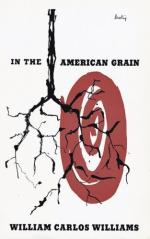
|
| Name: _________________________ | Period: ___________________ |
This test consists of 15 multiple choice questions and 5 short answer questions.
Multiple Choice Questions
1. What moral weakness does the narrator comment on in Washington?
(a) His tendency to drink too much.
(b) His refusal to free his slaves.
(c) His laziness.
(d) His fondness for women.
2. What does Houston do after he resigns as Governor of Tennessee?
(a) He joins the Indians who had been relocated to Arkansas.
(b) He settled down on a homestead and built a house.
(c) He goes West to explore.
(d) He decides to go back to school.
3. What do Burr's critics say about him when he runs for office?
(a) He is corrupt and would misuse power.
(b) He is frivolous and immoral.
(c) He does not have enough experience or education.
(d) He is secretly a Royalist.
4. What adjective does the narrator use to describe Boone's character?
(a) Temperamental.
(b) Strong.
(c) Mild.
(d) Brave.
5. What kind of position is Jones' squadron in when the battle begins?
(a) Jones has the same number of ships as the enemy.
(b) Jones has 20 ships and is at a strong advantage.
(c) Jones has fewer ships, but is in a better position geographically than the enemy is.
(d) Jones has only three ships left and is at a severe disadvantage.
6. What warning does Williams give the reader about history at the beginning of "The Virtue of History"?
(a) History is written by the victors.
(b) History is often bound by prejudice.
(c) History never tells the truth.
(d) History never lies.
7. What quality does Williams admire in the woman who lives in the "ramshackle castle" by the railroad tracks?
(a) Her creativity.
(b) Her courage.
(c) Her religious devotion.
(d) Her musical ability.
8. What happens to the barge that is towing John Paul Jones' ship?
(a) The barge catches fire in the battle.
(b) The barge is taken over by mutinous sailors.
(c) The bargemen cut the tow rope and steal the barge.
(d) The barge sinks in a storm at sea.
9. What does Williams compare the various incidents of Lincoln's life to?
(a) Dancers doing a series of intricately choreographed steps.
(b) Ridges of a sculpture that should be made of Lincoln.
(c) Instruments playing in an orchestra.
(d) Lines in a carefully crafted poem.
10. What part of Poe's reputation does Williams say is undeserved?
(a) His reputation for eccentricity.
(b) His reputation for poetic braggadocio.
(c) His reputation for the strange and macabre.
(d) His reputation for criticizing other writers.
11. Who raises Sam Houston during the early years of his life?
(a) The Abnaki.
(b) The Winnebago.
(c) The Tuscaloosa.
(d) The Cherokee.
12. How does Captain Landais' insubordination to John Paul Jones begin?
(a) He accuses Jones of treason.
(b) He accuses Jones of not taking into consideration the needs of the men on board.
(c) He accuses Jones of losing the barge by taking unnecessary chances with the boats.
(d) He accuses Jones of failing to pursue the enemy as vigorously as possible.
13. How does Jones feel about the battle?
(a) He says that it is necessary.
(b) He says that it is beautiful.
(c) He says that it is horrifying.
(d) He says that it is exciting.
14. What does the "Poor Richard" narrator say is a common misconception that Europeans have about America?
(a) It is very hard to earn a living by farming in America.
(b) Americans place a high value on leisure time and do not like to work.
(c) It is a dangerous place because there are so many Indian raids.
(d) They can move there and quickly be elected to political office.
15. What does Poe call Longfellow?
(a) A shyster.
(b) An ignoramus.
(c) A thief.
(d) A plagiarist.
Short Answer Questions
1. What reason does the narrator give for believing that Americans have trouble understanding their own national character?
2. What does Williams say is the one thing that Americans fear more than anything else in the world?
3. Which Founding Father refers to Aaron Burr as dangerous?
4. Why does Houston resign as Governor of Tennessee?
5. Why does John Paul Jones write to Benjamin Franklin in "Battle Between the Bon Homme Richard and the Serapis"?
|
This section contains 743 words (approx. 3 pages at 300 words per page) |

|




